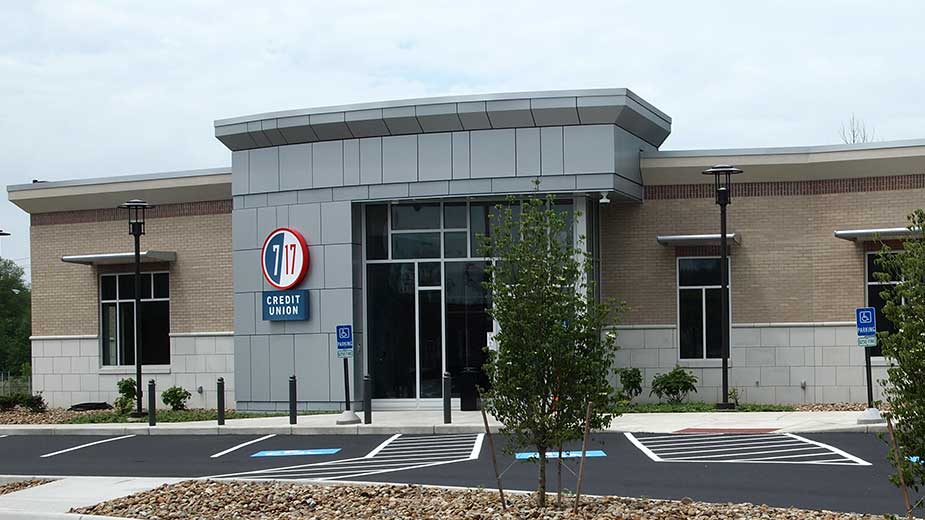Even Experts Are Unclear about Effects of Tax Reform
BOARDMAN, Ohio – Two CPAs extremely knowledgeable about the Tax Cuts and Jobs Act passed last month – Jim Rosa and Nick Demetrios – said the Republicans’ tax legislation, conducted in haste and secrecy, leaves many questions they can’t answer.
Rosa and Demetrios, principals in HBK CPAs and Consultants, conducted a two-hour overview Tuesday afternoon for clients of their firm and for professionals – lawyers, bankers and other accountants – eager to learn more about the provisions of the act so they can better advise their customers and clients.
The CPAs addressed what the revised tax code changes and left intact. “It’s the most significant change since 1986,” Rosa noted, and despite advocates’ claims, “This is not simplification,” he said. Rosa addressed the changes in individual filings while Demetrios focused on how the reforms affect businesses large and small.
“Rates are going down,” Demetrios began, but [the changes] opened up a lot of questions.
Little in the act affects how individuals and business will file their 2017 returns although there are some changes. For example, businesses that bought qualified equipment and placed it in service after last Sept. 27 can immediately expense it 100%. “Bonus depreciation is now 100% again,” Demetrios noted, and that encompasses “both new and used equipment,” a benefit business owners will enjoy through at least Dec. 31, 2022.
Bonus depreciation had been limited to 50% the first year and affected only new equipment.
The issue many business owners – those who are sole proprietors, in partnerships, or have a stake in S corporations (also known as pass-through entities) face is whether to reorganize as a C corporation. Each situation is different and both Rosa and Demetrios advised the audience to discuss such a move with their CPA and lawyer before acting.
As with all revisions of the tax code, there are winners and losers. Some wealthier business owners could be surprised to find that they are losers despite the lowering of tax rates, the HBK CPAs, said.
Individual tax rates change to seven brackets beginning this year, Rosa said, that range from 10% to 37%, all indexed to the chained Consumer Price Index. Beginning this year, Rosa explained, tax-rate tables and many other tax provisions are indexed for inflation (which has remained at historic lows since the Great Recession) based on the CPI. While consumer tax rates sunset or end after 2025 – Congress must set new rates – “The chained CPI will not sunset after 2025,” Rosa emphasized. Congress adopted the chained CPI because it rises at a slower rate than the CPI, the chained index assuming consumers will substitute less expensive goods for the goods in the CPI where possible.
“According to the Joint Committee on Taxation, the chained CPI will raise taxes by $128 billion [more than the CPI] over the next 10 years,” Rosa said, that is the U.S. Treasury will collect $128 billion more in revenue.
Both parties agree that the lower revenues the Internal Revenue Service collects over the next decade will add somewhere between $1 trillion (the Republicans) and $1.5 trillion (the Democrats) to the national debt. Rosa treats all such projections with skepticism, saying, “If you believe this, I have some property in a swamp …” His voice trailed off.
Regardless, Rosa presented the tables that show how much less in taxes individuals, heads of households and those married filing separately are likely to pay. The percentages those at the low end will save are far greater than those at the high end. Those at the upper end will keep far more of their income in absolute terms than those at the lower end.
For example, a joint filer with two dependents who reports an income of $25,000 should see a 40% reduction in his taxes, or pay $800 less. On the other hand, a joint filer with two dependents who reports $1 million in income will pay 5.45% less in taxes, but that translates to $16,348.
“The goal was to create more fairness,” Rosa said. “We haven’t done that yet.”
Some aspects of the Tax Cuts and Jobs Act of 2017 suggest efforts to foster more fairness.
Beginning this year, the act limits the deduction a homeowner can claim on his mortgage to $10,000 a year. “The $10,000 cap applies to state and local income taxes and property taxes, not to home mortgage interest. The home mortgage interest deduction for loans acquired after Dec. 15 would be capped at $750,000 of mortgage debt,” he said, “not the former $1 million.” This would seem to hurt those who buy more expensive houses.
“Interest on a second mortgage can be deductible if it is within the $750,000 debt limit and used to acquire or improve a residence,” he said.
But interest paid on a second mortgage, or home equity line of credit, used for purposes other than to improve one’s residence is no longer deductible. “No more Heloc deductions to buy a car,” Rosa said, “or to pay for a vacation or piece of jewelry.”
Charitable contributions can still be deducted but new restrictions are in place. Say someone makes a sizeable donation to Youngstown State University and is rewarded with preferred seating to watch the Penguins’ football team in Stambaugh Stadium. Such donations are no longer deductible.
Restrictions have been tightened on allowable entertainment expenses a business can claim, Demetrios said. Country club memberships still can’t be claimed. As of Jan. 1, buying meals in hopes of winning new customers or retaining old customers can be claimed at 50% but when meals are part of an entertainment event, they aren’t.
Deducting the rewards to highly paid employees for outstanding performances has been tightened but expenses for “employees not highly compensated,” such as Christmas parties, company picnics and summer outings remain deductible. So are the refreshment expenses incurred for meetings where employees are trained in new procedures to make them more productive at for shareholders at annual meetings.
Travel and attendance at outside that employees, such as salesmen, take in behalf of their firms remain fully deductible as are their meals and lodging. If they are part of an entertainment package, the lodging is no longer deductible.
An employer can no longer claim a new employee’s relocation expenses as a deduction. The new employee must claim as income any such reimbursement the employer provides.
Returning to the personal side, domestic relations court judges could see long-time divorced couples before them because of changes in the deductibility of alimony paid and because alimony received is now treated as income, Rosa said. The partner who pays alimony can no longer deduct such payments from his (or her) income and the recipient of alimony must treat such payments as income.
“This applies to divorce agreements entered into or modified after 2018, Rosa said.
Section 529 accounts where a parent or grandparent saves money in behalf of a child’s college education has been expanded to limited distributions that can be spent to pay the tuition at a private or religious elementary or secondary school. The limit is $10,000, Rosa said. Home schooling is ineligible, however. “This could be a significant item,” the CPA commented.
The areas on which considerable confusion remains because Congress drafted the language so poorly remains – Rosa and Demetrios candidly admitted they simply didn’t know how some sections of the act would be interpreted but they expect the IRS to provide guidance.
Afterward, both said they spent “hundreds of hours” following the measure through both chambers, read the versions the Senate and the House passed, read the document the conference committee produced, the revised version both chambers then agreed to and the expert commentaries that followed.
That was why both Rosa and Demetrios advised the audience to see them or one of their colleagues at HBK to discuss their situations before changing their status to a C corporation. Such an action would require the business owner to maintain such a status five years before reverting.
EDITOR’S NOTE: This story has been updated to include corrections and clarifications received from HBK’s Jim Rosa.
Copyright 2024 The Business Journal, Youngstown, Ohio.


